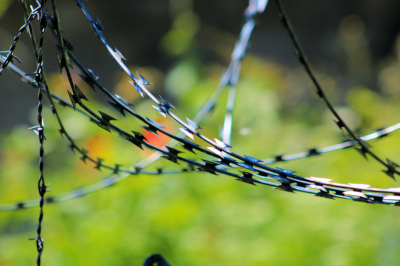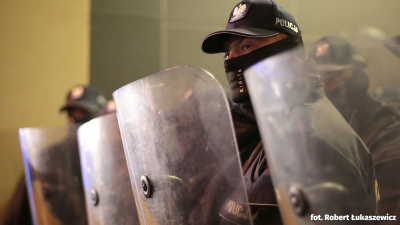
The monitoring of cases of police officers’ misconduct is an inherent part of the operations of the Helsinki Foundation for Human Rights. As the HFHR’s practical experience and cases referred to us show, excessive use of violence by the police is a key problem in this area.
In recent years, the Helsinki Foundation handled a lot of cases that involved the abuse of police powers. In many of such cases, abusive officers were charged but not sentenced.
Death of Igor Stachowiak
In May 2016, Igor Stachowiak died at a police station in Wrocław. As the Provincial Police Commissioner in Wrocław explained to the HFHR in writing, officers used a stun device on Igor Stachowiak twice, including at the moment when the man had been already handcuffed (to read the Provincial Police Commissioner’s response, follow this link).
The man died despite immediate first aid. According to the latest news reports, the probe into the case is likely to uncover new facts and the use of torture is now considered as a line of inquiry. An official investigation has been pending for over a year.
Police intervention in Knurów leaves football fan dead
In May 2015, Police used riot shotguns while confronting a group of football fans in Knurów. One of the fans, hit by a rubber bullet in the neck, died of the injuries after being rushed to the hospital. The HFHR sent a statement to the Chief Commissioner of the Silesia Police Department. Quoting the judgment of the European Court of Human Rights in Wasilewska and Kałucka v. Poland, the Foundation argued that the police should have ensured the presence of an ambulance at the scene.
Arrestee beaten at police station in Zamość
In February 2015, District Prosecutor’s Office in Krasnystaw discontinued investigation in the case of an alleged abuse of police powers by officers of the Police Department in Zamość. A prosecutor in charge of the case has not found any evidence of the use of unreasonable physical force on an arrestee (a person with a mental disorder), which resulted in the involuntary killing of the man.
Man beaten during police interview in Lidzbark Warmiński
In February 2013, K.J. and K.W. were beaten by police officers during an interview at the headquarters of the District Police Department in Lidzbark Warmiński. The officers used undue force in an attempt to force the victims’ testimonies. An official inquiry into the case was discontinued because it was impossible to determine the identities of the officers responsible.
The victims submitted an application to the European Court of Human Rights and were represented by counsel instructed by the HFHR. In 2014, the Court accepted the Government’s unilateral declaration that admitted the use of torture against the applicants in contravention of Article 3 of the European Convention on Human Rights.
Case of police beating in Jarosław: triple retrial
Since September 2010, the HFHR has been monitoring the case of the extensively lengthy inquiry into the beating at the police station in Jarosław. So far, the regional court in Przemyśl has three times ordered a retrial in the criminal proceedings against a female police officer accused of physically assaulting M.P. Currently, the district court in Jarosław is hearing the case for the fourth time.
Reform needed
The Helsinki Foundation has been long calling for the introduction of legal measures allowing the video recording of police interventions. “This would undoubtedly help to unequivocally test the credibility of charges made by subjects of police actions and limit the scope of police abuse, and in particular, abuse of violence”, says Piotr Kubaszewski from the HFHR legal team.
The issue of legal remedies available to persons questioning the appropriateness of police conduct during interventions has a profound place in the ECtHR’s jurisprudence, which points to critical locations where the abuse may take place, such as interview rooms or police means of transport. Under the current law, such locations cannot be monitored by video or sound recording devices unless such devices are used as part of a procedural act conducted in criminal proceedings.

